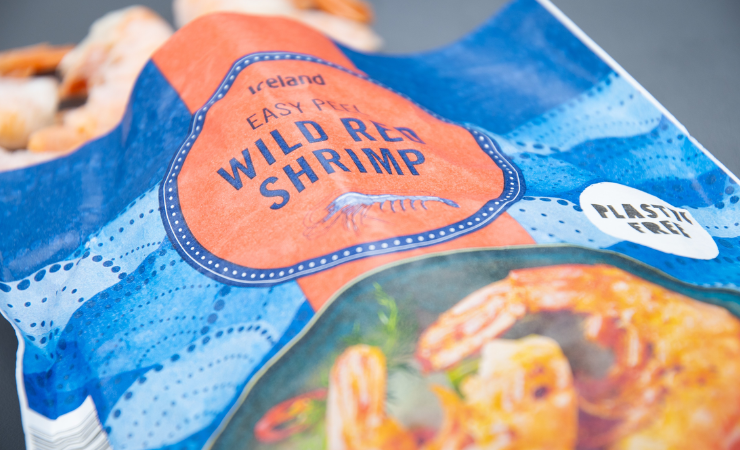Parkside has collaborated with Iceland to deliver paper recyclable packaging for the supermarket’s Northcoast range of frozen seafood.
The packaging project, printed using flexo, is a significant milestone for both Iceland – in its pursuit of plastic-free packaging – and the frozen food sector, as it represents one of the first successful applications of paper flexible packaging for frozen food.
Mark Armstrong, packaging specialist at Iceland, said, ‘We previously worked with Parkside in a successful bid to reduce food waste via a lidding film solution in 2017. But we know we can do more. As consumer sentiment continues to grow for circular solutions, it is the perfect time to collaborate once again in a bid to reduce unnecessary plastic in our packaging.’
Iceland’s Northcoast products were previously packed in an LDPE bag but, following the project with Parkside, they are now packed in a specially developed recyclable paper pouch with grease and oil resistance.
The heat-sealable paper solution was designed to withstand the rigours of frost and moisture in a freezer environment for prolonged periods of time. This has been achieved by utilising a range of water-based coatings, which are designed to break down when re-pulped in the paper recycling process.
Mr Armstrong added, ‘Bag sealing was a challenge, as was ensuring the material had the necessary barrier properties. We also wanted the print to match the existing LDPE bag and therefore a lot of time was spent in artwork and repro to give us the best possible result.’
Sales account manager at Parkside, Mark Shaw, said, ‘Until recently, achieving a high level of grease and oil resistance and heat seal ability for frozen food has been extremely challenging. Typically, a plastic layer such as Polyethylene would need to be extruded or laminated to the paper, which would then need to be removed when recycling post-consumer use. Our technology removes the need for the plastic and gives a truly recyclable paper solution with the added benefit of high barrier functionality.’



Quite an achievement but LDPE is a by product of the oil industry ,and if not utilised it would be wasted Paper requires trees to be de forested which consumes co2 ,plus paper production requires large amounts of water and toxic chemicals to produce
LDPE can be recycled into further use
So your innovation is not so sustainable as it appears
Regards
One solution that I would like to highlight is the use of recycled plastics. Companies like Raw tech trade are doing their part by providing a marketplace for buying and selling recycled plastic materials. By supporting this marketplace, we can help promote the use of recycled plastics and reduce our reliance on virgin plastics.